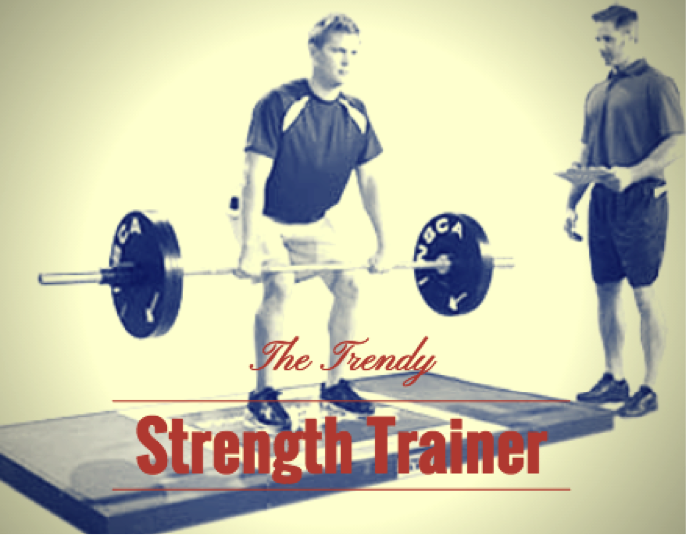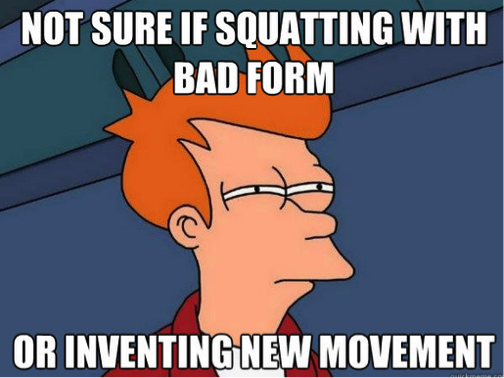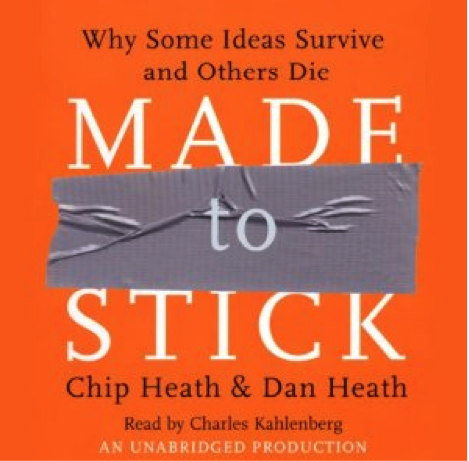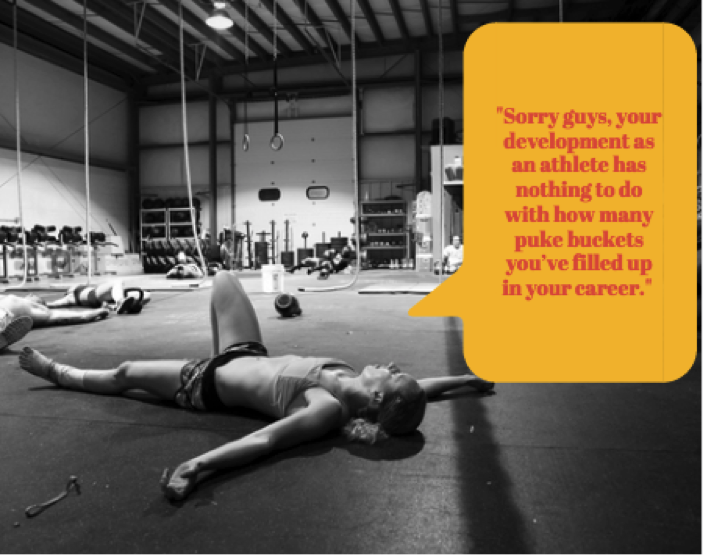This post could also be called, how to find a strength and conditioning coach who knows what he/she is doing!

Today’s post is inspired by something that happened last week. An athlete we just started working with told me about a guest strength coach who came to his school to take his football team through a workout.
So naturally, I ask this 17-year-old athlete how he liked the workout.
His response?
“Oh, man! That guy really knows his stuff. I mean he played in the NFL, like for a whole bunch of years. He’s really good man, I mean seriously. I’ve never been put through a workout like that before. I wasn’t even close to finishing. He definitely knows what he’s doing.”
Without any additional information this sounds great. The dude’s obviously had experience playing at a high level. The athletes seemed to enjoy the workout. Without any additional information, I can’t speak to why the athletes weren’t able to finish the workout, but then again, I wasn’t there.
Let’s add some additional information. I asked this athlete to show me how they have been practicing squats. He showed me a great example of a front squat, which had his ankles, knees, and hips all in completely the wrong position. Yes, I know all athlete’s squats look different, but this was frankly poor technique all around.

I’ll let you guys predict how his other lifts looked.
Yet, we see this all the time. A coach makes the athletes tired and athletes (and parents) walk away saying “that guy is amazing!” Did you see how tired the kids were?
By the way, adults are guilty of this too. Just because a trainer kicks your butt doesn’t mean he knows what he’s doing!
Before we go out and bash anyone, lets get a few things straight.
1) Experience competing at a high-level is a huge benefit for a coach training athletes. Coaches with this type of experience are able to speak to athletes about what they should anticipate as a high-level athlete and it’s possible they can help these athletes make solid decisions about what training to emphasize to best succeed. In fact, I believe that some of the best coaches are those who have been in the game!
2) Although the above example is similar to what happens frequently in these situations, do not mistake this as a bash in any way to any specific coach or coaching style. There are many different factors that could be at play in the example above, and I don’t know much about this particular coach. It’s always easy to poke fun when things may be out of context and in this case I’m simply using an example of one coach and one athlete’s feedback on that particular coach to highlight a larger and common issue.
Look, I get it. Your daughter, Mary, wants to play division one lacrosse so you’ve surrounded her with coaches and people who have been successful competing at the level she wants to play. This isn’t wrong in and of itself. The issue is when you assess the credibility of a coach based on the coach’s individual success as an athlete. This would be enough only if the coach was going to put on the jersey and play for Mary!
Think about it this way… just because you know someone who’s has had four knee surgeries and gives you great insight into what your recovery might be like, do you want that person performing your knee surgery? Probably not. Let’s hire a doctor for that.
Same goes for strength and conditioning. Just because someone’s played a sport doesn’t mean they are the best strength and conditioning coach.
A few notes on credibility…
People often determine if someone is credible in funny ways. In this example, the athlete (and likely his parents) are giving this strength coach credit simply because he played professional football, even though they’d be better off looking to see what types of results his clients have been getting or learning more about his credentials, training philosophy, programming methods, etc.
In the book Made to Stick by Chip Heath and Dan Heath, the authors make a great point regarding credibility. Our society will use Michael Jordan to endorse McDonalds when really, wouldn’t a nutritionist be more credible?

Unfortunately, I see this a lot with athletes and strength coaches. Most athletes would rather have Lebron James rather than Pavel Tsatsouline design their strength and conditioning program despite the fact that Pavel is one of the best strength and conditioning coaches and his athletes get fantastic results.
Your Takeaways
- Be more critical when looking for a strength coach.
- Make sure you are assessing the characteristics a successful strength coach should possess.
- Training background
- Education (formal and informal)
- Coaching philosophy
- Evaluation techniques
- Network (yep, it’s super valuable to have a coach who is close with neuromuscular therapist, chiropractors, your athletic trainer, orthopedist etc. if you ever need them in a hurry. Your strength coach being friends with the guy at GNC doesn’t count.)
- In-depth programming experience
- Injury prevention/rehab/pre-hab basics
- Testimonials (are their athletes performing well and getting results?)
If you do one thing please stop judging a coach’s credibility based solely on the difficulty of his/her workouts.

Your development as an athlete has nothing to do with how many puke buckets you’ve filled up in your career.
Expect more out of your coaches, and expect more out of your training! It’s very easy to make someone tired. Find a coach who has helped athletes get stronger and faster and perform better on the field.
View this quick video below with a testimonial from Bo Driscoll, Evansville Icemen Defenseman!
“Steve and the Skill of Strength staff have played a huge role in my development as an athlete getting ready to play at the professional level. Training at SOS allowed me to improve my athletic ability to the level I needed to compete against other professionals.
I’ve worked with many different strength and conditioning coaches, and completed many other training programs, but I have never felt more prepared for the grind of a long hockey season than I did after a summer of COMPETE Sports Performance Training.
I was able to sign a professional contract and may not be playing at this level without this training.”
– Bo Driscoll, Evansville Icemen Defenseman

One Comment
Comments are closed.